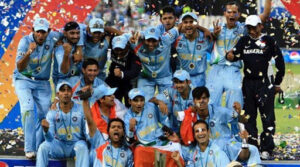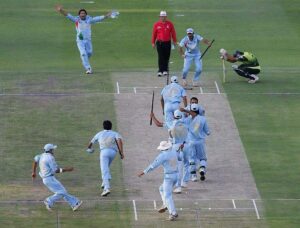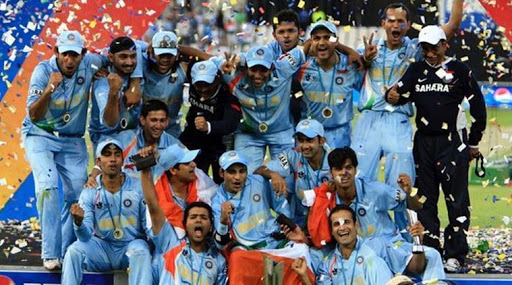
The ICC T20 World Cup assumes the adventurer’s role today, journeying to the United States of America in search of a new audience, even if they are primarily expats from cricket-playing nations. But, back in 2007, during the inaugural tournament, few knew what to expect. A product that had started off as fun event to draw crowds to cricket grounds in England was growing into a big business.
I had no idea of what I was setting myself up for when I accepted an offer from Yahoo! and its associates to travel to South Africa for the inaugural ICC World Twenty20. A votary of conventional cricket, there was some scepticism in the back of my mind and I allowed myself to be talked into the assignment.
A journalist friend of mine from Bangladesh asked me what I would do at a T20. It is for P3 reporters, he taunted. But I had made my commitment to watch the cricket for whatever it was worth and enjoy the opportunity. Perhaps, pegging expectations low helped and I had a feast I have not forgotten to this day.
As I travelled from Delhi to Durban in September 2007, the first thoughts in my mind centred around the lure of the unknown. No team admitted to feeling like explorers venturing into unchartered domain, but they were all excited at being part of a new chapter in cricket history. After all, humankind was replete with examples of instinctive attraction to such adventure.
The ICC World Twenty20 was expected to soothe souls hurting in the aftermath of the ICC Cricket World Cup 2007, a disaster from a marketing standpoint. India’s early exit after defeats to Bangladesh and Sri Lanka meant that there was no India-Pakistan face-off. Bob Woolmer’s sudden passing and the last few overs of the World Cup final being played in darkness worsened the script.
Yet, only 19 Twenty20 internationals had been played before the inaugural game at the ICC World Twenty20 2007. England boasted the most experience with six games under their belt, while Australia and South Africa had played five matches each. At the other end of the spectrum were India and Zimbabwe, with one match each.
For the Latest Sports News: Click Here

On September 24, 2007, I was in the press box at The Wanderers, watching the final between India and Pakistan. Had someone told me a fortnight earlier that the sub-continental neigbours would be playing for the $490,000 top prize, I may have laughed it off as wishful thinking. But two amazing weeks changed all that.
I had not even settled down in the press box at the Kingsmead Cricket Ground in Durban for the first time in a Twenty20 match when New Zealand pace bowlers, Shane Bond and Mark Gillespie, claimed four Kenya wickets for one run in the first two overs. The excitement did not stop flowing after that, and I considered myself lucky that I sometimes got a day’s break between matches.
There were so many wonderful memories collected in South Africa. A tie in the India-Pakistan league game, and then the bowl-out that saw India win 3-0. Yuvraj Singh’s six sixes off England pace bowler Stuart Broad, Australian paceman Brett Lee’s hat-trick, Pakistan leg-spinner Shahid Afridi’s nagging accuracy. Some stunning games tested my nerve too.
I had never imagined that I would be at a T20 final, and one featuring India and Pakistan at that. The Wanderers provided a great atmosphere, with thousands of Asians filling what they call the Bull Ring, waving flags of the two nations and inspiring the DJ on location to play music from the sub-continent.
Long before Misbah-ul-Haq floated a catch off Joginder Sharma for Sreesanth to take, we knew the Cricket World Cup would face a stiff challenge from its young cousin. It had all that young fans could be enticed with. The ICC World Twenty20 came along as the new kid on the block, with a magic wand to boot, and with the intention and ability to be around for a long time.
In the fortnight from September 11, 2007, I learnt that the Twenty20 game is for the smart cricketer, the fan in a hurry and the young journalist who can find new ways to describe the whole range of emotions that players and fans alike go through in the span of three hours at each match. That is something that has not changed.




